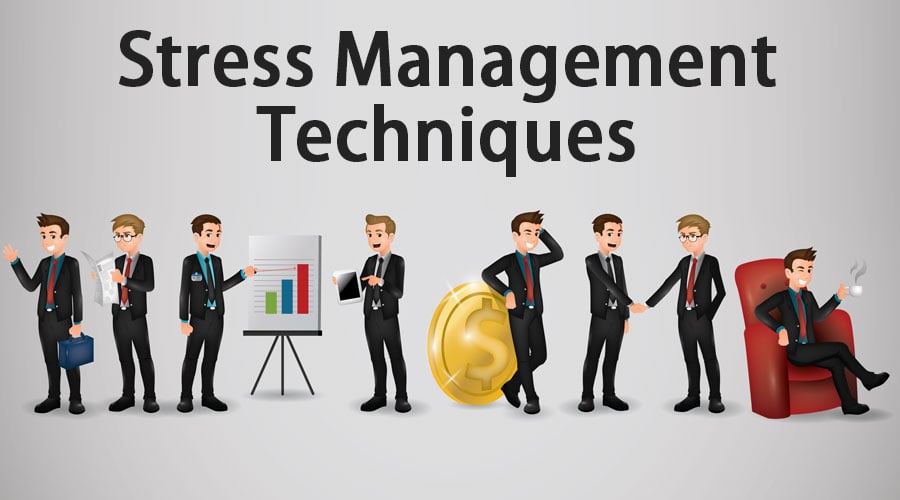
In today's fast-paced world, stress has become a common phenomenon that affects many aspects of our lives. From work pressures to personal responsibilities, the constant demands of modern life can sometimes feel overwhelming. As someone who has personally experienced the detrimental effects of stress, I have embarked on a journey to find inner peace and serenity. Through my own struggles and triumphs, I have discovered various techniques and strategies for managing stress effectively. In this article, I aim to share my personal insights and experiences to help others on their path to serenity.
My Journey to Serenity
Recognizing the Signs of Stress
Stress can manifest itself in a variety of ways, including physical, emotional, and behavioral symptoms. From headaches and muscle tension to irritability and insomnia, the signs of stress are not always easy to identify. Personally, I often found myself feeling fatigued, anxious, and overwhelmed when under a lot of pressure. Learning to recognize these signs early on has enabled me to take proactive steps towards managing my stress levels.
Mindfulness and Meditation
One of the most effective techniques I have found for managing stress is mindfulness and meditation. By practicing mindfulness, I have learned to focus on the present moment and let go of worries about the past or future. Meditation has helped me calm my mind, reduce anxiety, and improve my overall sense of well-being. Incorporating these practices into my daily routine has been a game-changer in my journey to serenity.
Exercise and Physical Activity
Physical activity has long been touted as a powerful stress-reliever. Whether it's going for a run, hitting the gym, or practicing yoga, exercise can help release endorphins, improve mood, and reduce feelings of stress and anxiety. Personally, I have experienced significant benefits from regular exercise, both in terms of my physical health and mental well-being.

Healthy Lifestyle Choices
Maintaining a healthy lifestyle is essential for managing stress. From eating a balanced diet to getting enough sleep and practicing self-care, taking care of your body is crucial in combating stress. I have found that prioritizing my health through proper nutrition, sufficient rest, and relaxation techniques has had a profound impact on my stress levels.
Seeking Support and Connection
Social support is another key aspect of stress management. Whether it's talking to friends, family, or seeking professional help, having a support system in place can provide comfort and guidance during difficult times. I have personally benefited from opening up to loved ones about my struggles and receiving their encouragement and understanding.

Time Management and Prioritization
Effective time management is essential for reducing stress and increasing productivity. By organizing tasks, setting priorities, and allocating time wisely, I have been able to create a balanced life that allows me to manage stress effectively. Learning to say no to extra responsibilities and focusing on what truly matters has helped me maintain a sense of control amidst chaos.
Coping Strategies and Resilience
Building resilience to stress is a crucial skill that can help navigate life's challenges with grace. By developing coping mechanisms, such as positive thinking, problem-solving skills, and emotional regulation, I have learned to bounce back from setbacks and setbacks. Cultivating a resilient mindset has empowered me to face adversity head-on and emerge stronger on the other side.
Conclusion
In conclusion, stress management is a vital component of maintaining a healthy and balanced life. Through my personal journey to serenity, I have discovered the power of mindfulness, exercise, healthy lifestyle choices, social support, time management, and resilience in managing stress effectively. By incorporating these techniques into your own life, you too can find inner peace and tackle stress head-on. Remember, it's okay to seek help and prioritize self-care in the midst of life's challenges. Embrace the journey to serenity, and may you find peace and tranquility in the midst of life's chaos.
FAQs
Q: What are some common signs of stress?
A: Common signs of stress include physical symptoms like headaches and muscle tension, emotional symptoms like anxiety and irritability, and behavioral symptoms like changes in sleep patterns.
Q: How can mindfulness and meditation help manage stress?
A: Mindfulness and meditation techniques can help calm the mind, reduce anxiety, and improve overall well-being by focusing on the present moment and letting go of worries.
Q: Why is exercise important for stress relief?
A: Exercise releases endorphins, improves mood, and reduces stress and anxiety. Engaging in physical activity can be a powerful tool in managing stress levels.
Q: What role do healthy lifestyle choices play in stress management?
A: Maintaining a healthy lifestyle through proper nutrition, adequate rest, and self-care practices is essential for combating stress and promoting overall well-being.
Q: How important is social support in managing stress?
A: Social support from friends, family, or professionals can provide comfort, guidance, and understanding during stressful times, making it a crucial aspect of stress management.
Q: How can time management help reduce stress?
A: Effective time management, prioritization, and setting boundaries can help create a balanced life, allowing individuals to manage stress levels and increase productivity.
Q: What is resilience and why is it important in stress management?
A: Resilience is the ability to bounce back from setbacks and challenges. Developing coping strategies, positive thinking, problem-solving skills, and emotional regulation can build resilience, empowering individuals to navigate stress with grace.


0 Comments